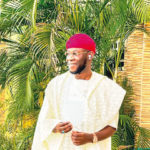It is thinking that distinguishes man from the other animals and makes him the image of God. But it must be systematic and scientific thinking with a definite object in view. It involves observation, collection of data and materials, analysis, synthesis, and reasoned deductions. It demands attention, contemplation, idealisation, visualisation, and reflection. It needs rigorous training, self-discipline, and self-knowledge. It has tremendous rewards: self-conquest, self-improvement, self-realization, and victory over environment and heredity are some of them.
For the sake of clarity and understanding, this kind of thinking must be distinguished from other kinds so called. Mere perception is not thinking; the lower animals do this too.
But if perception is purposive, then it ranks as thinking. Because in that case, it becomes only the first stage to a perceptual, conceptual, and ideational thinking, each of which is necessarily purposive. Desultory use of the mind, wild imaginings and day- dreamings are not thinking. Even children are more adept in all these than adults. At best these are sheer conceptual or ideational dissipations.
From this description, it is clear that only a very few people do real thinking: the majority do very little of it, if at all. The reasons for this are two-fold. First, man as a thinker is still in his infancy.
Though the age of homo sapiens is put at 40,000 years, yet as a thinker he is, according to Joad, only approximately 2,500 years old. Joad dated man’s inception as a thinker from Confucius, Buddha, Lao Tse, Socrates, Plato, and Aristotle, all of whom lived between 600 and 400 years B.C. With respect, we beg to differ.
We are of the opinion that the dawn of human thinking began with Hammurabi and Moses, that is between the eighteenth and fourteenth centuries B.C. These two were the first among mankind to assemble traditional customs and usages and systematise them respectively into a Code of Law. But even when all this is conceded, man’s infancy and immaturity as a thinker remains.
The immediate ancestor of homo sapiens is said to have emerged during the later glaciations of the Ice Age, nearly 1,000,000 years ago. According to Joad, there has been life of some sort upon our planet for between 600,000,000 and 1,200,000,000 years. It is possible that the original and remote ancestor of man was in existence some 70,000,000 years ago. On these counts, therefore, the infancy of man as a thinker is established beyond any dispute. Secondly, the majority of the people do not have the disciplined education which is indispensable to systematic and scientific thinking. Consequently, their perceptual facuIty is dull, vague, and desultory, and their a perceptual, conceptual, and ideational capacities are either undeveloped or never developed to any significant level. Their talents lie buried. In popular parlance, they can see, but do not understand.
Sociologists have sought to show that what distinguishes man from the other animals is his ability to speak and communicate his ideas and experiences, whether concrete or abstract, to others. But the very invention of language, or what the sociologists term arbitrary symbol, is the product of thinking. It is the greatest invention that man has ever made.
Now when a man is able to think, and is able to do so systematically, scientifically, clearly, constructively, and persistently, with a definite object in view, he is able to act on the immutable law or universal mind and make it materialise, in concrete form, the object of his thought. The universal mind, as we have said before, is latent everywhere, and permeates and pervades all things: it is both immanent and transcendent. It is omnipotent, omniscient, and omnipresent. A man has two layers of mind: the conscious and the subconscious. The physical instrument of the conscious mind is the cerebra-spinal system of nerves; and that of the subconscious is the autonomic system of nerves. When a man thinks in the way which we have described, he is able to impress on the subconscious mind his ideas, ideals, or objects. Once this is done the subconscious mind which is omnipotent, omniscient, and omnipresent proceeds to materialise the idealised objectives.
It follows from the foregoing, therefore, that the subconscious mind and the universal mind are one and the same thing. Indeed they are: both in kind and quality. The only difference between the subconscious mind and the universal mind is one of degree.
The supreme importance of the nexus between the body and the conscious mind on the one hand, and the subconscious mind on the other, must be emphasised. If the body is dead, there can be no life and there can be no mind – whether conscious or subconscious. But what sustain life itself and generate energy in the body thereby enabling man to think consciously are air, water, food, clothing, and shelter, when used in the right quantity, proportion, and quality. The conscious mind is the medium by which man makes his observations, collects his data, does his analysis and synthesis, and makes his reasoned deductions. The subconscious mind, on the other hand, does none of these things. It only accepts such findings and conclusions of the conscious mind as are clear, systematic, scientific, and persistent, and proceeds to implement them in its own infinite ways and wisdom.
We see then that the body of man is indeed the temple of God or the universal mind; and we can now find no difficulty in agreeing with the Psalmist when he says that man has been made ‘a little lower than God’. This, in our view is the truth – the only truth. When we know this truth and, by an act of faith or by a process of rigorous and systematic reasoning, are unshakably convinced of it, we automatically enter into the regime of mental magnitude, properly and eminently equipped with a considerable measure of intellectual comprehension and cognition, insight, and spiritual illumination.
In this regime, we are free from: (t) the negative emotions of anger, hate, fear, envy or jealousy, selfishness or greed;
(2) indulgence in the wrong types of food and drink, and in ostentatious consumption; and
(3) excessive or immoral craving for sex. In short, in this regime we conquer what Kant calls ‘the
tyranny of the flesh’, and become free.
To those who will rejoin that these ideals are too lofty for human achievement, we quote the eternal words of Jesus Christ, who never enjoins man to impossibilities. Says he: ‘You shall know the truth,
and the truth will set you free.’ In other words, some day in the distant future, we will- all of us- know the truth, and, royally, enter into the regime of mental magnitude, where love reigns
supreme.
I McDougall: Outline of Psychology.
2 Haanel: The Master Key, page 34.
3 Joad: Guide to Philosophy.
YOU SHOULD NOT MISS THESE HEADLINES FROM NIGERIAN TRIBUNE
We Have Not Had Water Supply In Months ― Abeokuta Residents
In spite of the huge investment in the water sector by the government and international organisations, water scarcity has grown to become a perennial nightmare for residents of Abeokuta, the Ogun State capital. This report x-rays the lives and experiences of residents in getting clean, potable and affordable water amidst the surge of COVID-19 cases in the state…Fayemi has shown exemplary Fayemi has shown exemplary
Selfies, video calls and Chinese documentaries: The things you’ll meet onboard Lagos-Ibadan train
The Lagos-Ibadan railway was inaugurated recently for a full paid operation by the Nigerian Railway Corporation after about a year of free test-run. Our reporter joined the train to and fro Lagos from Ibadan and tells his experience in this report…Fayemi has shown exemplary Fayemi has shown exemplary
WATCH TOP VIDEOS FROM NIGERIAN TRIBUNE TV
- Let’s Talk About SELF-AWARENESS
- Is Your Confidence Mistaken for Pride? Let’s talk about it
- Is Etiquette About Perfection…Or Just Not Being Rude?
- Top Psychologist Reveal 3 Signs You’re Struggling With Imposter Syndrome
- Do You Pick Up Work-Related Calls at Midnight or Never? Let’s Talk About Boundaries







